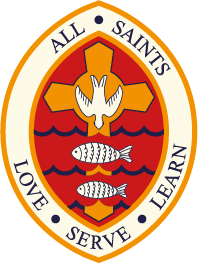Drama and Performing Arts
Leader of Dance and Drama: Mrs L Sheldon
The drama curriculum has been designed to provide students, not only with the skills required to help them succeed in a career within drama, but with essential life skills that will be required as they progress in to the world of work.
It is our intention to provide students with the performance and theatrical skills that will allow them to access the requirements for GCSE practical exams, whilst also developing their creativity, imagination, research skills and ability to work co-operatively as a team to allow them to effectively produce the pieces that will be performed. In addition to this, students analytical and evaluative skills and their ability to understand context, genre and style are developed to create an understanding of how to approach a text.
Key Stage 3
In lessons during Key Stage 3, we cover the following in order cover the basic knowledge for each of the skills detailed above.
- Year 7 Half Term 1 – Storytelling: This introductory scheme of work introduces basic performance skills such as vocal skills (pitch, tone, pace and volume) and physical skills (gesture, body language and facial expressions) through the use of Roald Dahl’s Revolting Rhymes. This scheme of work also allows for the introduction of the fundamental skills required for effective group work and therefore introduces ‘The 5 C’s’ (Co-operation, Concentration, Self-Control, Commitment and Communication).
- Year 7 Half Term 2 – Page to Stage: We introduce students to script layouts and methods to determine playwrights’ intentions, how scripts can be interpreted and gain an understanding of how contexts can inform style of performance. Students learn how to identify genre and mood within a piece, whilst applying performance skills learnt in the previous topic to help portray this effectively on stage. The ‘5C’s continue to be developed in this project as we begin to also develop confidence with more performance opportunities.
- Year 7 Half Term 3 – Musicals: Students are introduced to a new genre of drama that also allows an introduction to dance and singing as students explore performing arts on a wider scale. Students explore musicals as a style of theatre and compare the differences to other genres. This scheme of work also touches upon the basics of dance and other performing arts disciplines. Students will learn about what makes a ‘Triple Threat’ and pick a specialism to demonstrate in the new style of theatre that they have learnt about.
- Year 8 Term 1 – Dramatic Techniques (Stones): Students are introduced to issue-based drama through the exploration of the play Stones. Students revisit skills developed in Page to Stage to help determine context and playwrights’ intentions whilst learning more about how theatre can be explored and brought to life through the use of dramatic techniques such as thought tracking thought tunnels, hot seating and monologues. Students begin to understand how issue-based drama can be presented sensitively and creatively by exploring the plays theme of peer pressure and consequences.
- Year 8 Half Term 2 – Devising: Students are introduced to the basics of devising a piece of theatre through the exploration of a range of topical stimuli. Students are encouraged to think creatively about what pieces of drama could be created based on their initial response and are introduced to new techniques such as choral speaking, basic physical theatre to add to their knowledge of dramatic techniques gained last term.
- Year 8 Half Term 3 – Technical Skills: Students are introduced to a wider range of roles and responsibilities within the performing arts industry. Students learn about all aspects of technical design and work together to create a ‘Theatre Company’ that will pitch a performance idea – allowing them to draw upon all skills learnt throughout Year 7 and 8.
- Year 9: In Year 9 students choose two Creative and Expressive Arts options from Drama, Fine Art, Music and Photography. Choosing two Creative and Expressive Arts subjects allows students to have more time to develop a broader range of skills, which will make the transition easier at GCSE. Students are introduced to more advanced theatrical skills and will have the opportunity to explore a number of production roles.
Key Stage 4
At Key Stage 4 students can choose to study AQA GCSE Drama and/or AQA Technical Award in Performing Arts, allowing students to opt for a Dance or more general Performing Arts route.
In AQA GCSE Drama students currently study the set text Blood Brothers by Willy Russell. Students explore acting techniques including character motivation, gesture, physicality and vocal technique to apply to the scripted performance, before analysing and evaluating their work. Students learn to create a performance from a stimulus, working as part of a ‘Theatre Company’. They will practically explore a number of Devising techniques before performing the finished piece for a live audience. Students are also required to study and evaluate a live theatre production, explore, and evaluate a published text set by the exam board.
The AQA Technical Award in Performing Arts is designed to equip students with a range of practical performing arts skills. Students will gain an understanding of choreography and performance skills, as well as building knowledge of how the performing arts industry works; including exploring how marketing, research and technical elements such as costumes, set and lighting contributes to an effective performance. Through practical, project-based learning, students will also develop a variety of transferable skills including self-appraisal, team work and problem solving.
What can I do with a Drama or Performing Arts qualification?
The Creative Arts industry is the UK’s second largest employer. Drama and Performing Arts courses provided a strong foundation to further education in performing arts as well as providing the basics of essential life skills desired by all employers in modern society. Students develop skills such as research, negotiation, communication, teamwork and cooperation. With these skills students will be better equipped to proceed within their chosen industry, whatever that might be.
